Israel
Israel's military continues to press into Rafah, Gaza's southernmost city, in search of what it has described as Hamas' last stronghold.
Defense Minister Yoav Gallant visited Israel’s south command on Sunday and gave an update on the ongoing military offensive.
“The forces are fighting with great determination and destroying the oxygen pipeline that connects the Gaza Strip with Egypt, we are strangling Hamas and not allowing it to continue to exist - it will not have the ability to reinforce, strengthen and arm itself.”
After 8 months of war with fronts including the Red Sea, the border with Syria and Lebanon, Israeli officials work to control the political future in the Gaza Strip.
"The security establishment, following my instruction, is preparing the ruling alternative to Hamas, when we isolate areas, we will remove the Hamas people from them and introduce other forces into them that will enable another government that will also threaten Hamas."
Prime Minister Benjamin Netanyahu is facing growing pressure following the presentation of a deal to release the remaining hostages for an extended cease-fire.
Over 36,370 Palestinians have been killed in Gaza by Israeli troops. Israel's far right cabinet has ruled out a path to Palestinian statehood.
What about legitimacy, efficiency?
Israel is looking for “local non-hostile actors,” an Israeli defense official told The Associated Press, adding that Gallant believes that “Palestinians should be governing Palestinians.”
Israel would facilitate surges of aid to the areas, and the local forces would be responsible for distributing it to strengthen their authority.
But that approach is challenging and has failed before, one expert said.
“I haven’t heard of any local players that are brave enough to present themselves as an alternative to Hamas,” said Michael Milshtein, an Israeli analyst of Palestinian affairs at Tel Aviv University and a former military intelligence officer.
Milshtein said Gallant’s “wishful thinking” would amount to a suicidal mission for any local leader. Hamas has threatened anyone cooperating with Israel’s government.
“Although Hamas suffered severe damage over the past eight months, their impact on the public is still very strong,” he said.
Milshtein noted that Israel has tried this approach in the past. In the 1970s and ’80s, Israel tried to establish “village leagues,” empowering local Palestinian leaders.
“They were considered in the eyes of Palestinians as collaborators, and it ended in a very tragic manner,” he said. Unless Israel maintains a constant presence in Gaza, any “alternative forces” they try to install will be too fragile, he added.
Netanyahu has said Israel will maintain security control over Gaza but delegate civilian administration to local Palestinians unaffiliated with Hamas or the Western-backed Palestinian Authority, which governs parts of the occupied West Bank. He has ruled out a path to Palestinian statehood.




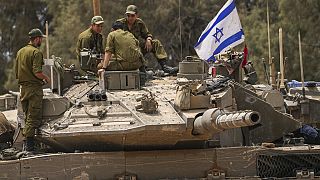
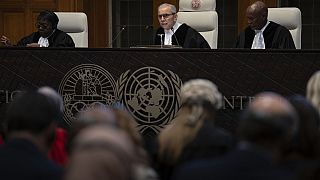
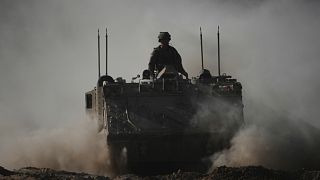
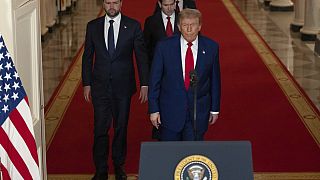
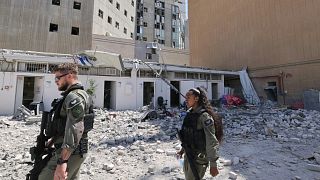



01:30
Trump calls for a Gaza ceasefire deal as some Palestinians are skeptical
01:03
Iran’s judiciary says at least 71 killed in Israel’s attack on Tehran prison
01:15
Egypt condemns Israeli 'aggression' against Iran, backs ceasefire
00:58
Iran: Hundreds of thousands mourn top military figures, civilians killed by Israel
01:11
Yemen: Tens of thousands hold pro-Iran rally
Go to video
China, Egypt FMs discuss Middle East escalation in phone call